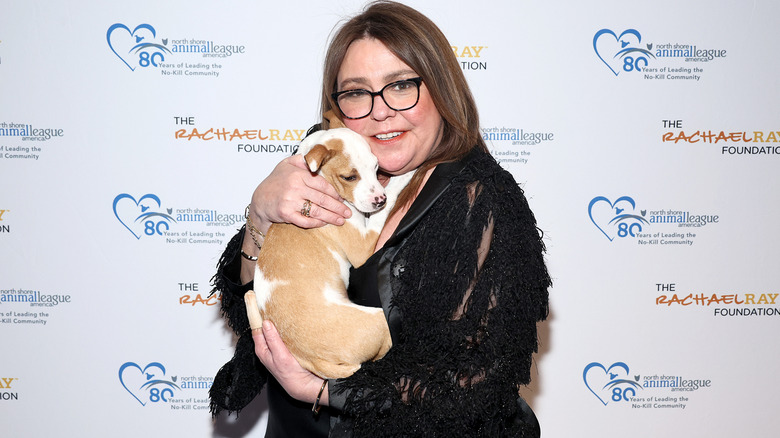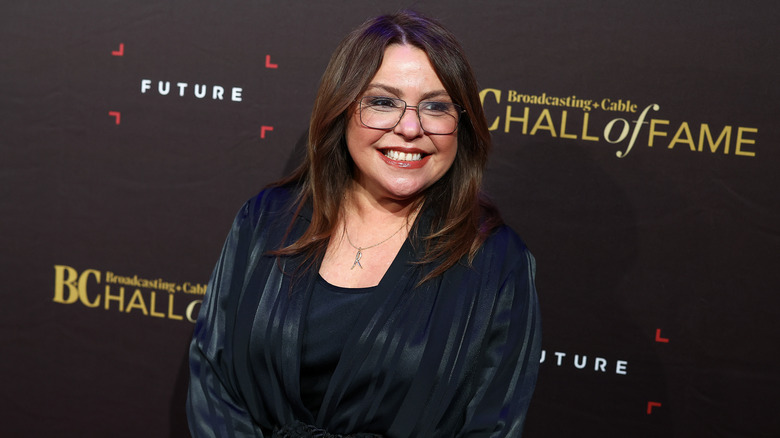The Lawsuit That Damaged Rachael Ray's Reputation
The heartbreaking story of Rachael Ray's downfall from fame continues to get even more tragic. According to The Wrap, Markeith Parks sued Ray's dog food company Nutrish for $5 million in August 2018. The class-action lawsuit was centered around Nutrish allegedly falsely advertising its products as "natural," in order to get consumers to believe that they were securing their pet's best interests by paying a premium price for them. "These claims are false, deceptive, and misleading," the lawsuit detailed. "The Products at issue are not 'Natural.' Instead, [they] contain the unnatural chemical glyphosate, a potent biocide and endocrine disruptor, with detrimental health effects that are still becoming known."
According to the EPA, glyphosate is a herbicide primarily used to curb weeds. While the pesticide's effect on dogs remains unclear, the EPA confirmed that there are "no risks of concern to human health from current uses of glyphosate." It's worth noting that in some of the promotional materials for the brand, Ray bragged that she would gladly eat the dog food herself just to demonstrate how much faith she had in the ingredients. So, it's not surprising that she shared a statement with NBC News to assert that she fully backed the manufacturers of Nutrish pet food.
Additionally, the beloved TV personality proudly proclaimed that her own pets regularly ate Nutrish products too. And, in a statement to The Wrap, Nutrish's parent company, The J.M. Smucker Company, insisted that they were pet safe, while clarifying, "Glyphosate is commonly used by farmers but is obviously never added as an ingredient in our products." While the lawsuit was ultimately dismissed in 2019, it still gravely impacted Ray's public image. The List reached out to Amy Prenner, communications expert and founder of The Prenner Group, for her perspective on it.
A communications expert told us how Rachael Ray could have better protected her reputation
While exclusively speaking to The List, Amy Prenner, a communications expert and the founder of The Prenner Group, explained how the class-action lawsuit added to Rachael Ray's tragic real-life story. "When consumers hear allegations — especially concerning health or safety — they form judgments quickly, often without waiting for legal outcomes," the expert professed. "Social media amplifies this effect, turning isolated claims into viral controversies." Further, the general public could form a negative opinion about the beloved star by taking a quick peek at headlines instead of actually doing their own research.
As Prenner warned, "Once trust is eroded, rebuilding it becomes an arduous process." Moreover, the communications expert pointed out that when a celebrity puts their name on a product, they essentially give it the credibility they had built from the ground up. But lawsuits could lead to "misplaced accountability for issues outside their control." She reckoned that Ray could have better navigated the controversy by clearly outlining her role in Nutrish in her statement and letting people know that she understood their concerns.
The professional cook could then have worked to earn back her fans' trust by creating an open dialogue with consumers and getting independent parties to reaffirm the quality of Nutrish products. In fact, back in 2013, her reputation took a similar hit when a former guest sued "The Rachael Ray Show" and claimed that she endured grueling treatment when she appeared on a weight loss segment for teens on the show. Suffice it to say that the lawsuits made several people better understand the many celebs who just don't like Ray.

